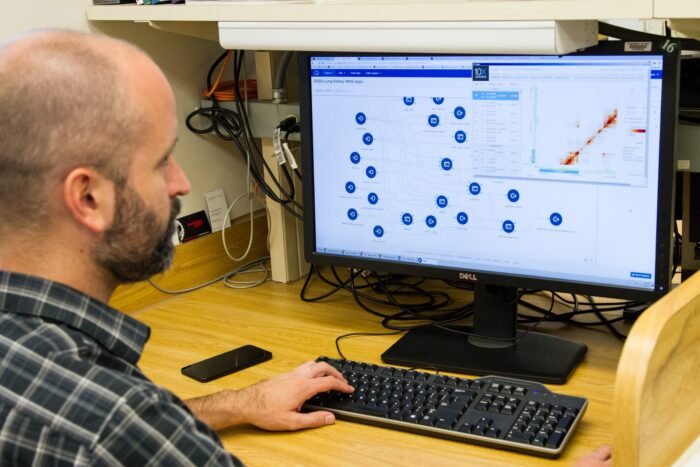
Choosing a career in healthcare is undoubtedly a good decision. Not only is this line of work well paid and held in high esteem but you can also make a positive impact on the world and improve people’s lives. As you probably already know, there are many subsections to the healthcare industry, from drug development and patient care to data analytics and medical equipment innovation. However, we’re specifically going to be talking about healthcare management today. Though this career isn’t as well recognized as becoming a doctor, it is equally important. If you’d like to find out more, or if you’re considering a Masters in Healthcare Management, then you should read on. Here’s everything you need to know:
Job Description

So, what exactly is healthcare management? Well, healthcare managers are people who work as administrators or leaders in these organizations. Sometimes they’re responsible for whole facilities, other times they run a singular department. All is dependent on their level of expertise, experience, and authority. When we say healthcare organizations, we’re typically referring to things like hospitals, nursing homes, pharmacies, and medical centers with general practitioners.
As this industry never sleeps – otherwise, patient lives are at risk – healthcare managers will be expected to work full-time and might need to come in during the evenings, weekends, or holiday seasons. This being said, their average salary is over $60,000 per year. For those wondering what is precisely involved with healthcare management, we’ll go over the roles and responsibilities later.
The Requirements

If you want a career in healthcare management, you will obviously need the right skills and qualifications. For starters, you’ll need a bachelor’s degree, but a master’s degree will make you more highly desirable. Fortunately, you can easily acquire the latter using the services of DHGE a company that specializes in linking students and professionals with providers of healthcare qualifications. These courses will take roughly 28 months.
Regarding your subject, you should ideally have a degree in either health services, business, nursing, public health, or health administration. Though you don’t necessarily need any training for the role, nonetheless you should volunteer or intern at healthcare organizations wherever you can. Building your CV will make you incredibly attractive to employers. In your cover letters and interviews, you’ll also need to demonstrate some of the following to be considered a worthy candidate; leadership skills, communication skills, administrative skills, business skills, and relationship management skills. General knowledge of healthcare is essential, too. As with job, the more experience and expertise you have, the higher you’ll climb up the career ladder.
Roles and Responsibilities

Now let’s discuss what is actually entailed in being a healthcare manager. Most of the roles and responsibilities include leadership and administrative work – so, essentially, you’re in charge of the operations and keeping everything running as smoothly as possible. This could either be in your singular department or across the entire organization. Seeing as lives are at risk with healthcare, the stakes are very high. Therefore, you must be confident, competent, and account for all possibilities. So, let’s delve a little deeper into the individual components of the work. Here are some of the things that a healthcare manager will typically oversee:
Accounting
Healthcare organizations are businesses, so they need funding and have overheads to contend with. As such, accounting is a fundamental part of being a healthcare manager. You need to monitor what money is being spent on, which departments require more funding than others, and where the organization could be more cost-effective. For instance, hospitals need to pay their supply chains for certain medical treatments, plus make sure employees are being paid correctly.
Marketing

Strangely enough, marketing is important for healthcare organizations nowadays. Rather than selling a product, though, healthcare marketing is used to educate people on potential health risks and ensure patients are accessing the resources they need. To give an example of what we mean, marketing has been employed to educate people on how to prevent the spread of coronavirus in recent months. Marketing is also used to help healthcare organizations gain the human capital they need, such as highly skilled surgeons, through job advertisements. Healthcare managers will oversee these marketing campaigns, developing effective strategies using their skills in business.
Communicating and Negotiating
In a sense, healthcare managers are the middleman of the operation. They communicate information between the different departments, members of staff, and suppliers, making sure everyone is happy and that everything is running as efficiently as possible. It’s also their job to negotiate any conflicts that might arise. For example, some departments might feel they’re understaffed by comparison to others, so it’s the manager’s responsibility to redistribute the workforce.
Enforcing Rules and Regulations

Like we mentioned before, there are high stakes involved with careers in healthcare. It’s the manager’s job to guarantee the safety of their patients and their employees. This means they must enforce the rules and regulations required to meet the high standards of health and safety for healthcare organizations. They will complete audits to evaluate how thoroughly measures are being followed by members of staff and will adapt their policies to ensure they’re still effective.
Data-Driven Decision-Making
Healthcare analytics are incredibly important nowadays, so healthcare managers need to understand them and take action depending upon what their interpretation is. For instance, data analytics might show that the organization is taking a long time to transfer patients from one department to another. Using this information, a healthcare manager will adapt the organization to ensure transportation between departments is optimal.
Human Resources

Healthcare managers will sometimes be responsible for human resources, too. This means they might chase up workers who consistently have unexplained absences, will intervene if there are signs of misconduct or malpractice, or implement employee benefits schemes.
If it weren’t obvious, healthcare management covers a broad spectrum. It’s the perfect job for people who want to make a difference to the world around them and enjoy completing a versatile range of work. Start studying for a bachelor’s or master’s degree today and take your first step towards a career in healthcare management.








